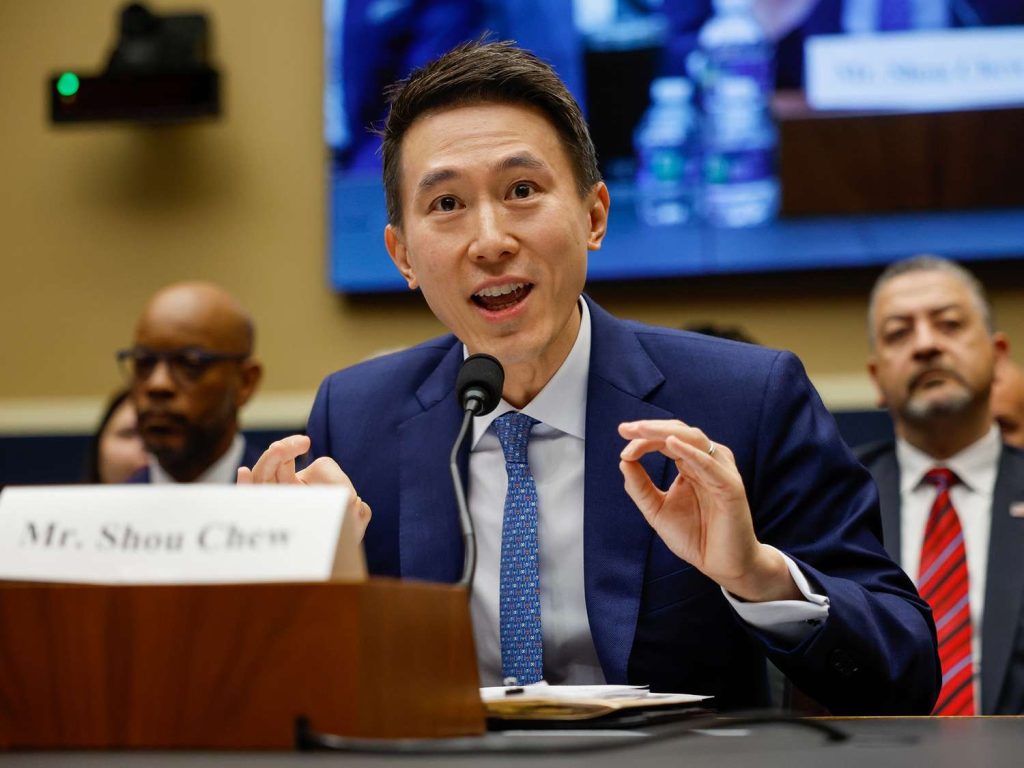By
Howard Bloom
On Wednesday, April 24th, the Senate passed a TikTok bill. And Joe Biden signed it into law.

The new law says that ByteDance, the company that founded and owns TikTok, must sell TikTok to an American purchaser within nine months or TikTok will be banished from the Apple and Google app stores and will no longer be able to make updates to its software in the United States.
Says Shou Zi Chew, the Singapore-based CEO of TikTok, “make no mistake, this is a ban.” And Chew is calling on TikTok’s 170 million American users to make an overwhelming noise, a noise that will set TikTok free.
What’s more, Chew plans to take this to court. He says it violates the First Amendment. And he’s right.
But here’s the real problem. TikTok is one of the greatest platforms ever invented for asserting your identity, developing your talents, and trying to gain what every one of us needs more than food, shelter, and clothing: attention. Recognition from others.
Not to mention that TikTok is a platform for creating new businesses and making a living with them. Seven million new businesses so far. At least according to TikTok.
All of that is TikTok’s positive side. But there’s also a negative side, a dark side. TikTok is owned by a Chinese company, ByteDance. And the Chinese Communist Party’s Military-Civil Fusion Strategy dictates that every Chinese company must make its staff, its technology, and its data an arm of the Chinese People’s Liberation Army whenever it’s called upon to do so.
That includes Chinese companies operating in the United States.

What’s just as bad, TikTok’s parent, ByteDance, has had a Chinese Communist Party committee inside the company for the last ten years.
And one former ByteDance executive says that in 2019, the Chinese government used TikTok to pin down the identity of the protestors clogging Hong Kong’s streets. What’s worse, said this executive, ByteDance made TikTok’s American data available to its Communist Party Committee.
TikTok’s CEO, on the other hand, swears that in its eight-year history, TikTok has never turned over data to the Chinese government.
But a turnover of live data only needs to happen once to be devastating. Let’s say China is about to attack Taiwan, the independent, democratic island that China claims as its own. We Americans are sworn to defend Taiwan.
If the Chinese People’s Liberation Army is about to send its landing craft across the Taiwan Strait, it can use TikTok’s staff, technology, and live data to determine whether American soldiers or sailors are being gathered together and where. In other words, it can tell if it is catching us off guard and taking us by surprise. How? China can track the location of all the American military men or women who have TikTok on their personal phones.
Like D-Day, the assault on the quiet beaches of Normandy that helped defeat the Nazis in World War II, this military use of TikTok data only has to happen once.
And remember something else. TikTok is balanced between two cultures, the Chinese and the American. And those cultures are radically different.
The home base of TikTok’s owner, ByteDance, is China. Keep in mind that China not only regards all Chinese living in the motherland as citizens subject to Chinese dictator Xi Jinping’s laws. China also regards every person of Chinese birth everywhere in the world as subject to the security laws of Xi Jinping.
For example, in 2023 at the Berklee College of Music in Boston, there were two Chinese students. One was disturbed about China’s despotic practices. She handed out pamphlets advocating democracy in China.
The other had listened to what his government had told him. Even if you are overseas, you are a citizen of China. If you see a dissenter, someone who will make China look bad, it is your duty to pursue and harass her.
Which is exactly what the second Berklee School of Music student did. On the Internet, he stalked the woman giving out pamphlets and threatened to chop off her hands. He may have been doing what the government of Xi Jinping demanded, but he was also breaking the laws of the culture he was living in, America. So he was arrested and on Wednesday April 24th, was sentenced to almost three years in an American prison.

This kind of intimidation of Chinese overseas is not a fluke. It is typical. If you live in Paris, London, New York, or San Francisco and do something the Chinese government does not like, the Chinese security apparatus attacks you by getting your parents still living in China to call you. While a Chinese policeman is standing over them. Just to let you know that if you do anything the government disapproves of, your parents back home will be punished.
If China can exert that degree of control over Chinese living in America, imagine what kind of control it can exert over TikTok’s parent, ByteDance, a company headquartered in Beijing.
References:
https://newsroom.tiktok.com/en-us
https://cn.ambafrance.org/IMG/pdf/loi_nationalite_chine.pdf
https://apnews.com/article/tiktok-ban-congress-bill-1c48466df82f3684bd6eb21e61ebcb8d
https://apnews.com/article/tiktok-china-bytedance-user-data-d257d98125f69ac80f983e6067a84911
https://www.cnn.com/2024/04/24/us/xiaolei-wu-prison-china-democracy-intl-latam/index.html
https://www.nbcnews.com/news/world/china-dissidents-abroad-transnational-repression-rcna140146
https://www.businessinsider.com/tiktok-ceo-shou-chew-pressure-users-freak-out-ban-2024-4
https://www.businessinsider.com/tiktok-ban-explainer-bill-courts-2024-4
https://www.wsj.com/tech/personal-tech/tiktok-ban-bill-explained-159280ef
______
Howard Bloom of the Howard Bloom Institute has been called the Einstein, Newton, and Freud of the 21st century by Britain’s Channel 4 TV. One of his eight books–Global Brain—was the subject of a symposium thrown by the Office of the Secretary of Defense including representatives from the State Department, the Energy Department, DARPA, IBM, and MIT. His work has been published in The Washington Post, The Wall Street Journal, Wired, Psychology Today, and the Scientific American. He does news commentary at 1:06 am Eastern Time every Wednesday night on 545 radio stations on Coast to Coast AM. For more, see http://howardbloom.institute.
